Entrepreneur Minded Learning in a Music Technology Course
As part of the integration of Entrepreneur Minded Learning in one of my courses, I chose to restructure my Music Technology Practicum course. The nature of this course, which serves as the Humanities and Arts capstone for all undergraduate students, involves students from various non-music majors completing a project that builds upon previous courses taken in music. Some come with interests and skills in computer science, others with skills in art, some are proficient in music composition or performance, but are not technology-savvy.
In this light, I created a Wiki site with over a dozen completed and partially-completed projects that I’ve been working on through the years with other researchers, students, and on my own. Prior to the beginning of the term, I sent all registered students a link to the Wiki, where the could browse through the various large-scale projects and see specific tasks that I’ve identified as potential term-length projects for one or more students. Each project task lists the types of skills that might be required. I encouraged students to use this information to either select a project based on skills they already have or based on skills they’d like to acquire during the term while they work on the project; the decisions were ultimately mixed.
Each project page contains a link to various resources including GIT repositories where project code and other files are securely stored, and, in some cases, research articles, and other documentation.
Wiki Site showing various potential projects for students
In the first class meeting, students sat in a large group and ate pizza, while I began a few preliminary brainstorming tasks in which I first identified a few hypothetical target audiences who want to learn and play music, but can’t for various reasons; people in hospitals or stationed in remote parts of the world, children in low-income neighborhoods, busy professionals with little downtime, and disabled populations. Students then worked in small groups to devise ways that technology can be used to provide music instruction, and refined their conversations to address specific musicianship skills and the specific technological approach they’d pursue.
Students agreed that beginning a project from scratch is an endeavor that would likely exceed the seven-week timeframe of this course, and happily elected to continue working on an existing project making note of the ease by which they, themselves, were able to identify new project types and audiences in just a few moments.
I continued the first meeting by showing a presentation that recapped the various projects and specific term-tasks that students could choose, and discussed some of the goals and skills associated with each project. Then, I partitioned the room into imaginary sections and gave directives like “Everyone who wants to work on this music rehearsal mobile app, go into this corner”, “everyone who is interested in the music escape room go over here”. Students introduced themselves, discussed their majors and interests, and, at my request, listed their favorite bands and musicians. Students were free to investigate various groups during this time.
Prezi slideshow showing specific tasks and skillsets for each project
Students and I worked together to form small teams, and tasks were assigned. I then asked students to return to the Wiki page and formalize their teams by completing a brief form on the Wiki site. This page also listed my expectations from them for each subsequent class meeting, which included an agenda and details about work that was completed and work that was to be completed. Students were expected to devise a team strategy to complete the project in time, and divide the labor appropriately among themselves.
The following class meetings consisted of short, private, team status-report meetings between me and each team, and large group class meetings in which teams gave presentations of their progress to the entire class.
Wiki and Google Doc used to organize student teams
At the conclusion of the term, each of eight projects, which included four music education-oriented video games, a musical escape room, a music theory analysis system, an audio instrument sound library, and an adaptive instrument controller, completed their proposed goals. A few of these projects have been distributed for free on the Apple iOS app store and other distribution outlets thanks to the generosity of both a Kern Family grant and the WPI administration, which helped to purchase some of the necessary publishing resources. An informal survey given to the students.
At the close of the term, students marked their names as contributors on the appropriate project page of the Wiki, and committed their projects contributions to the appropriate file repositories, ensuring that future student groups can build on their work. The restructuring of this class, including the selection of projects, the creation of tasks, and the identification of necessary skillsets, forced me to think like an entrepreneur, and, in combination with the regular team meetings, in which teammates were accountable to each other and responsible for their respective contributions, I feel that this course modeled Entrepreneur Minded Learning; hopefully, students can transfer these skills to their own project ideas.

